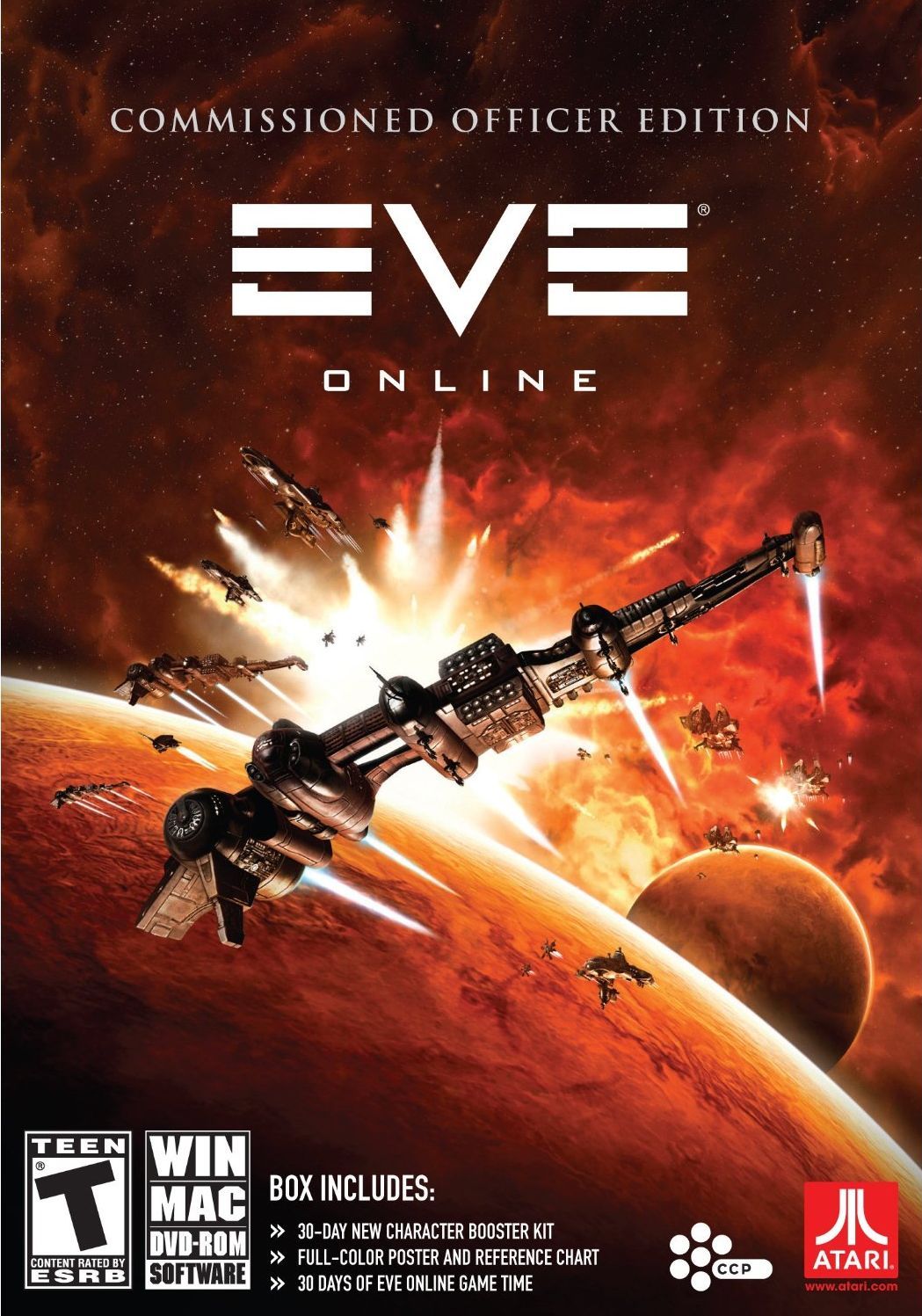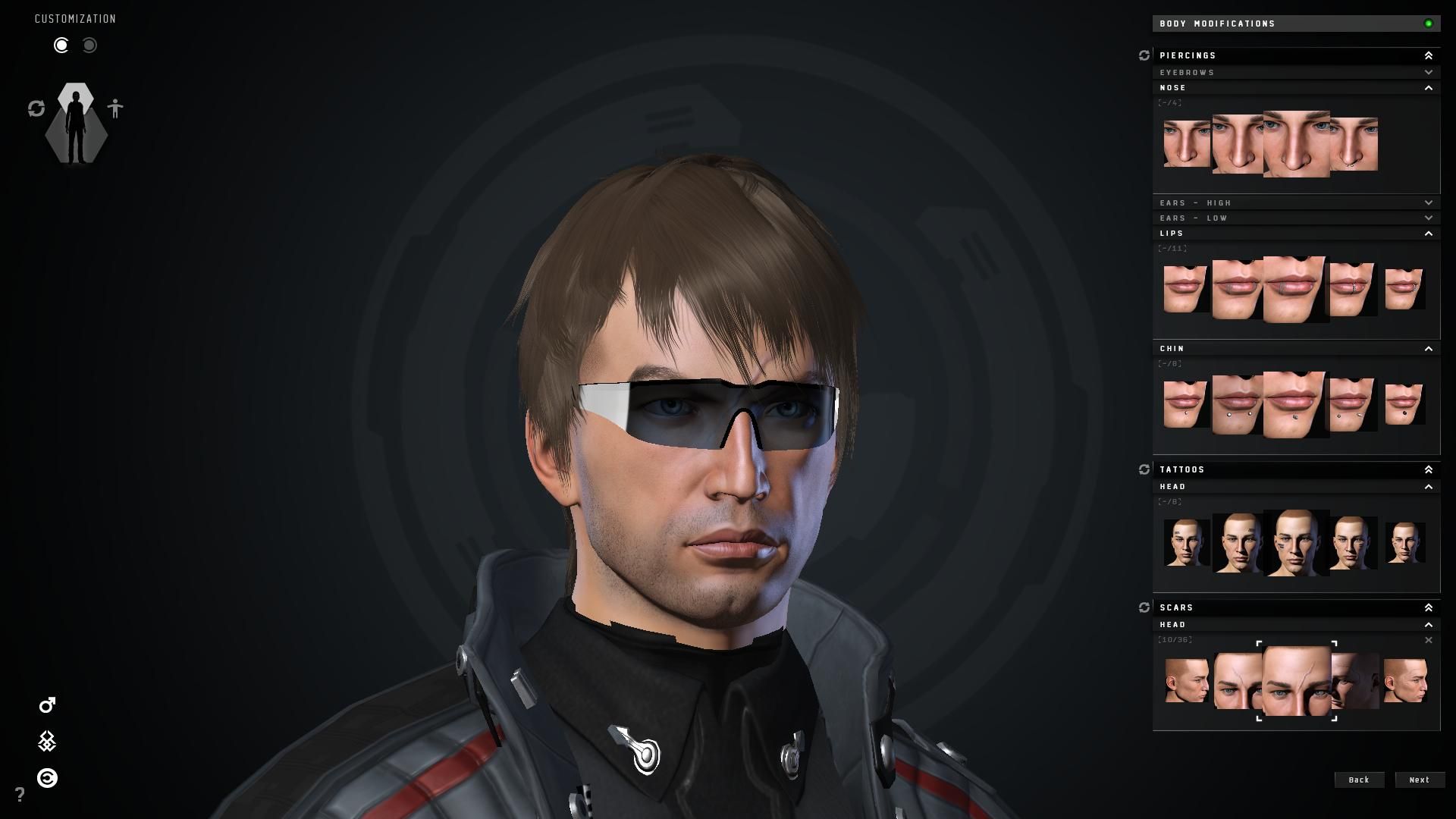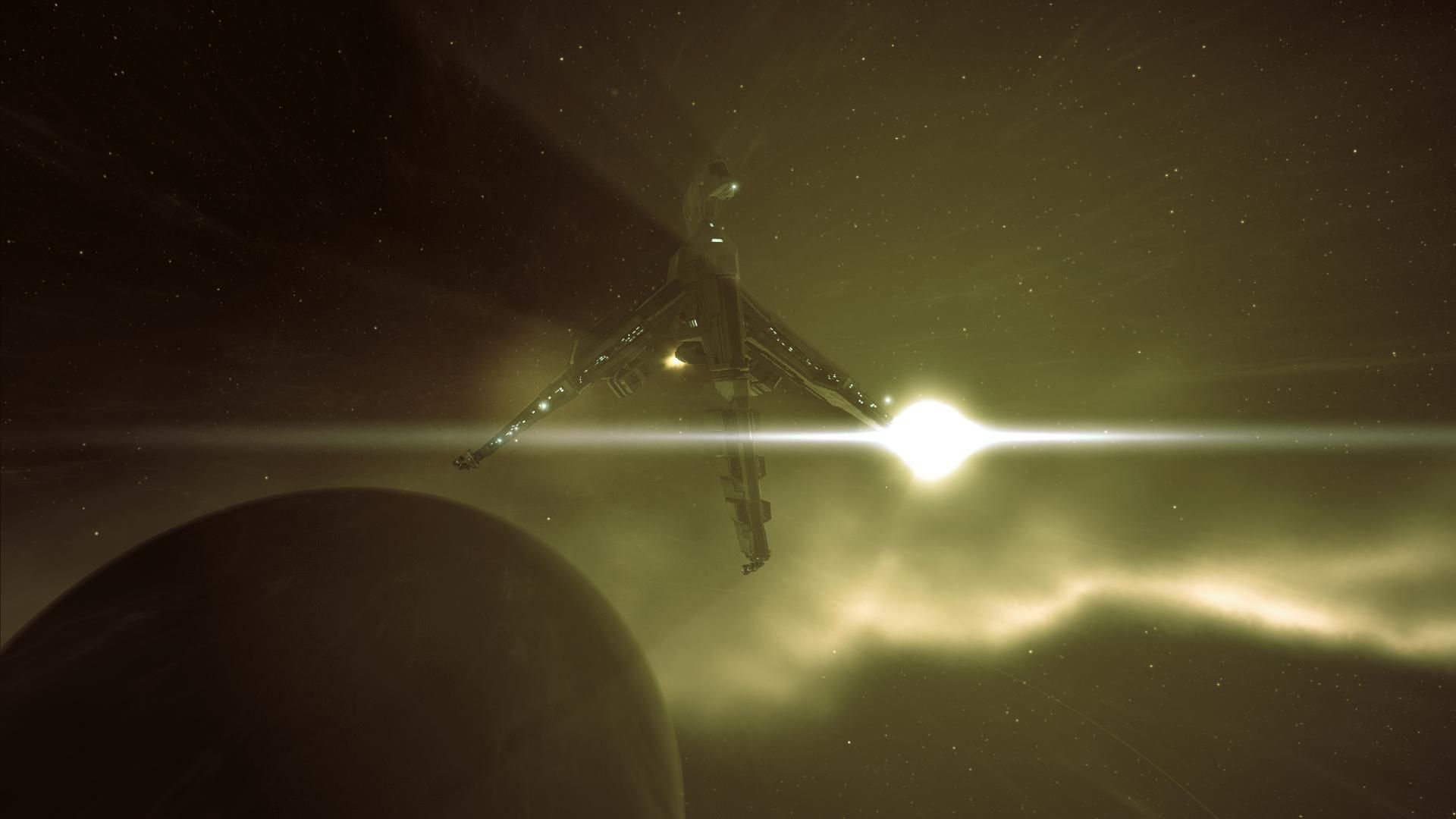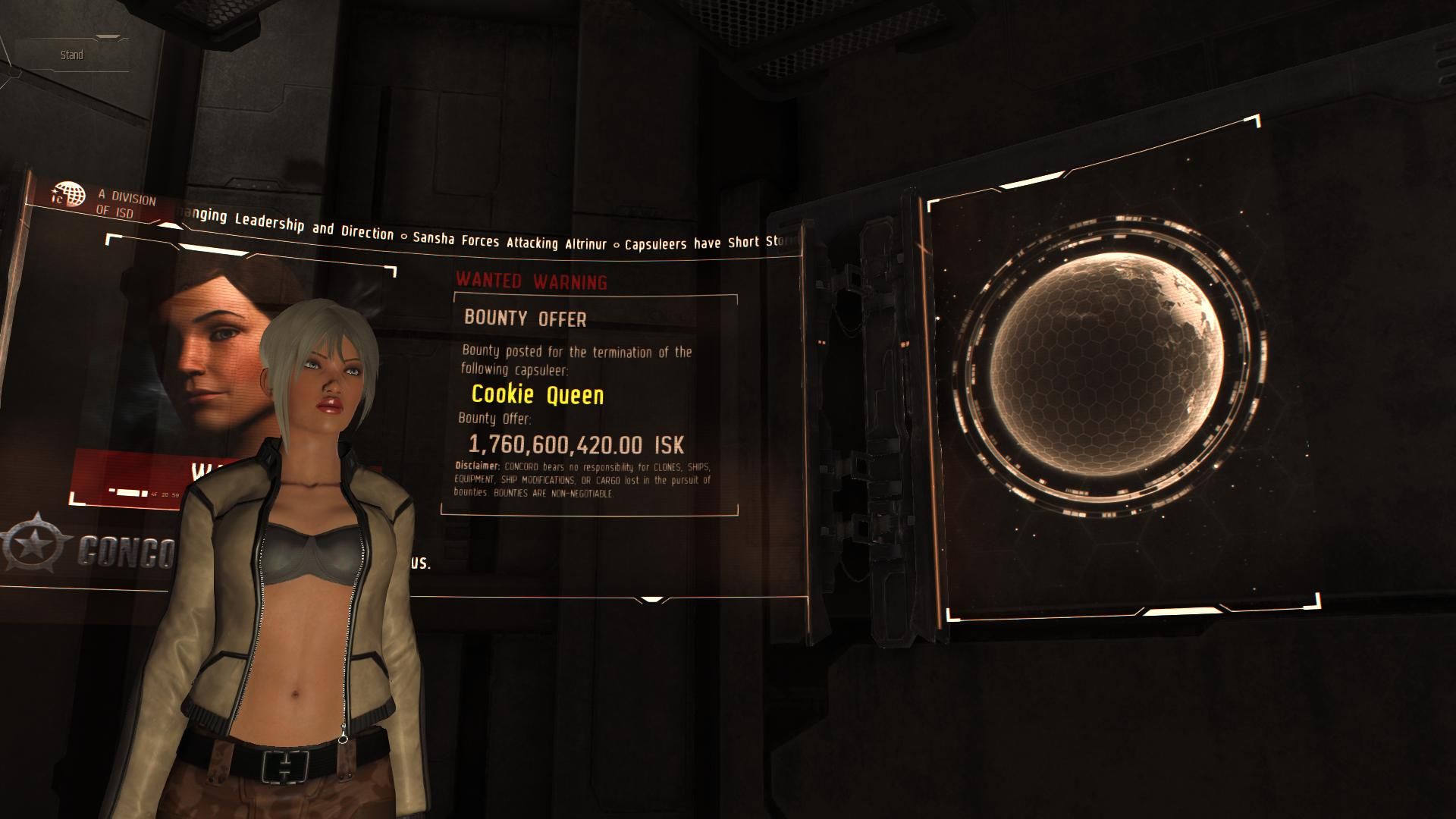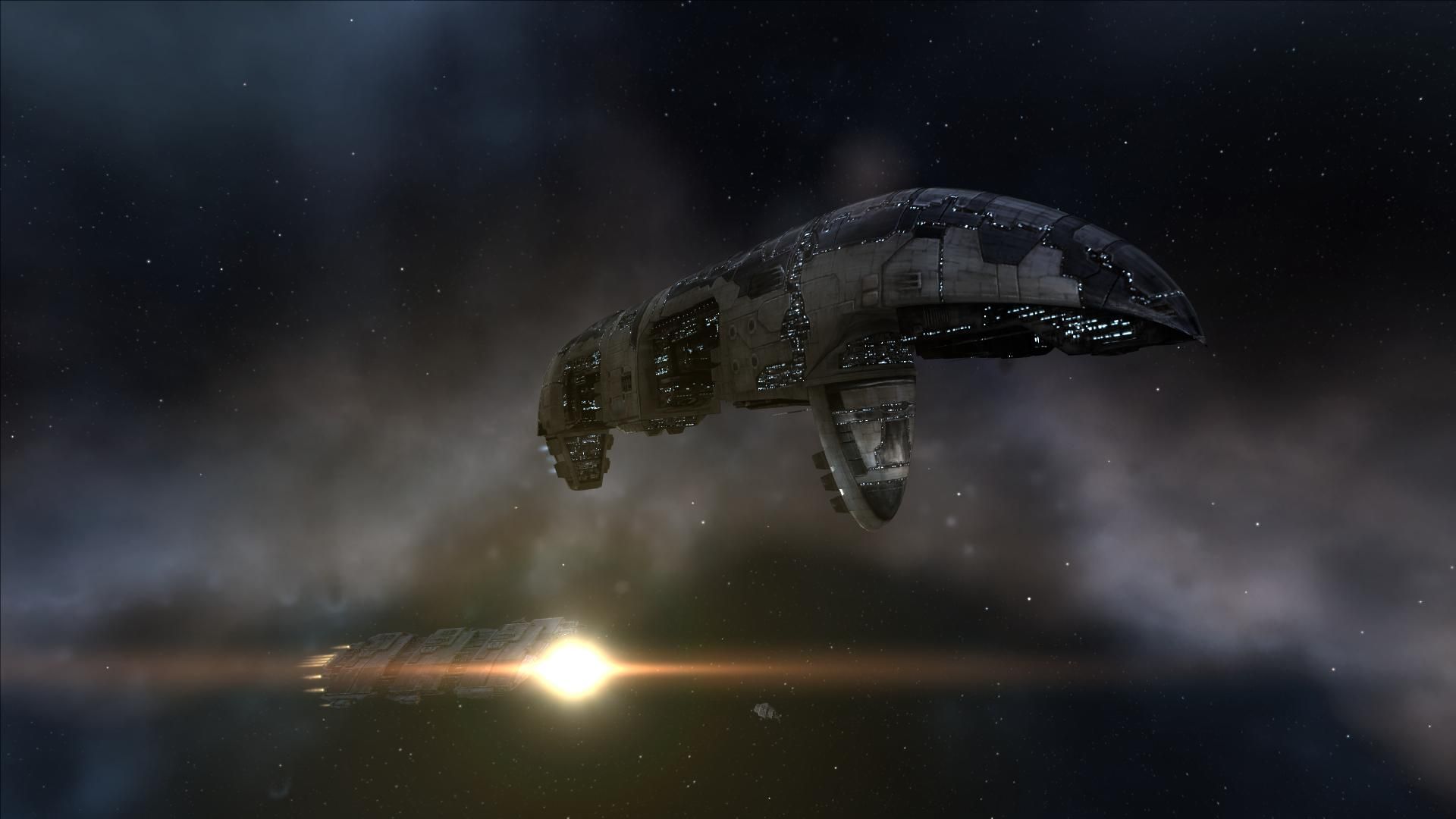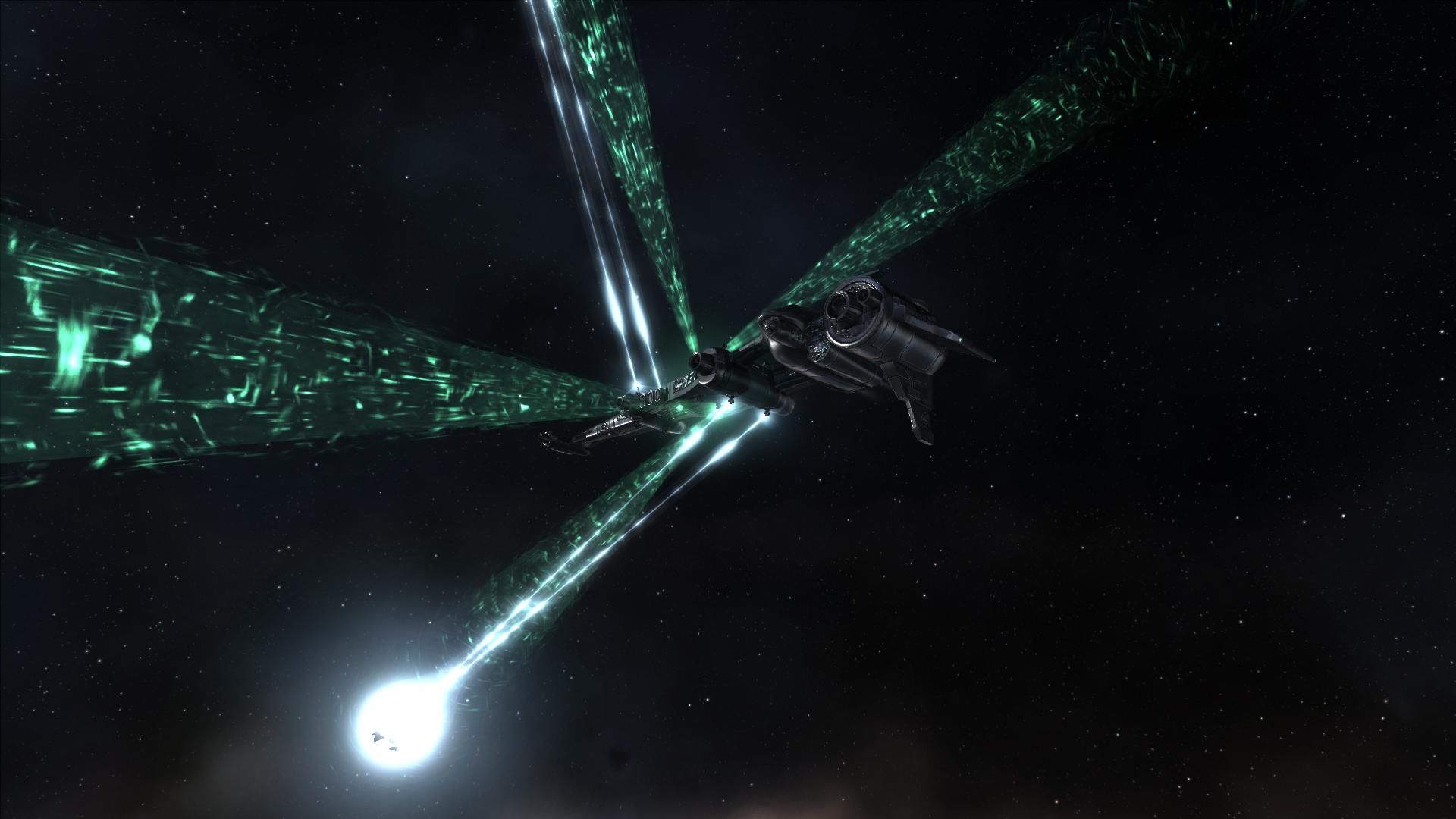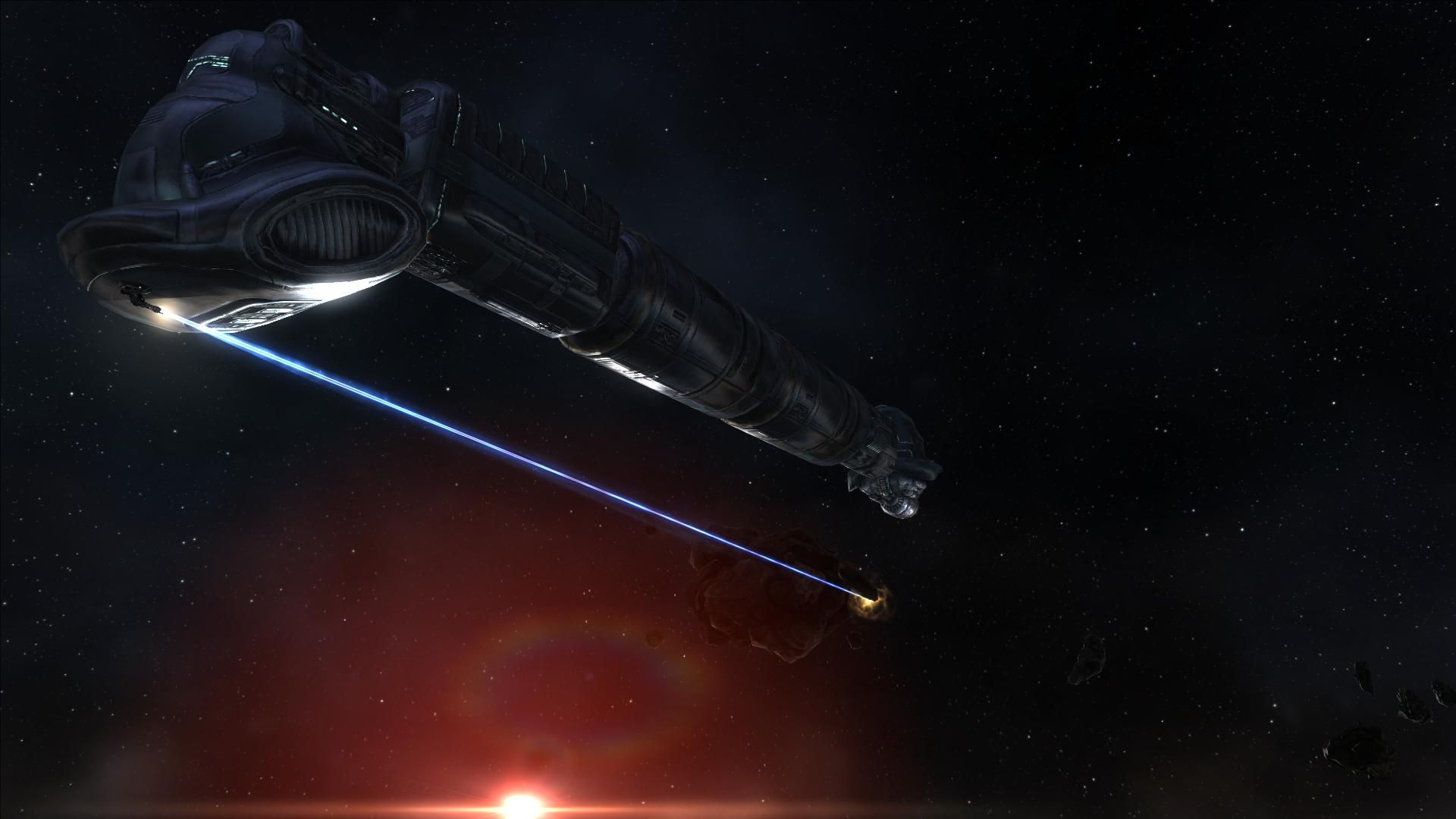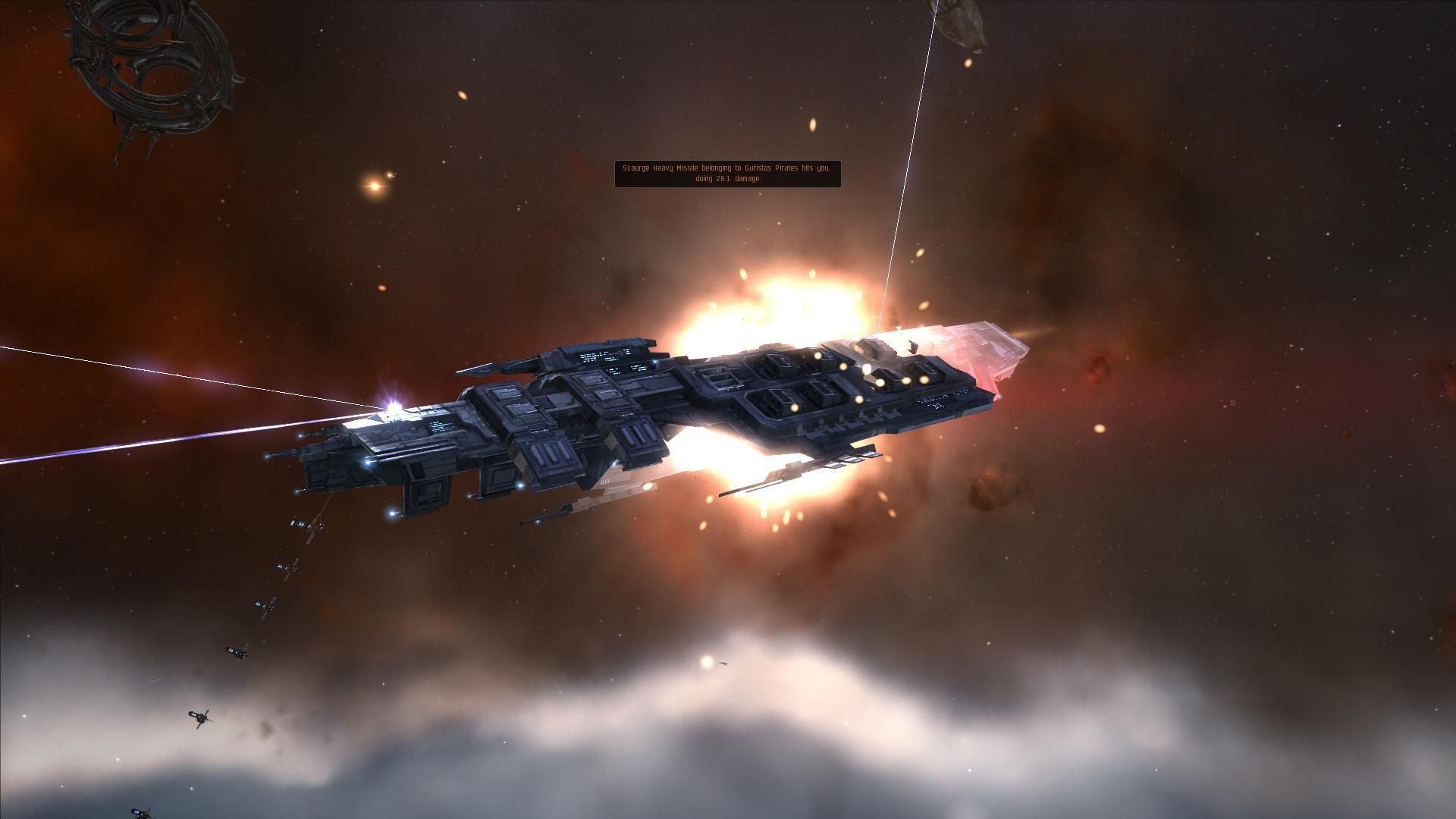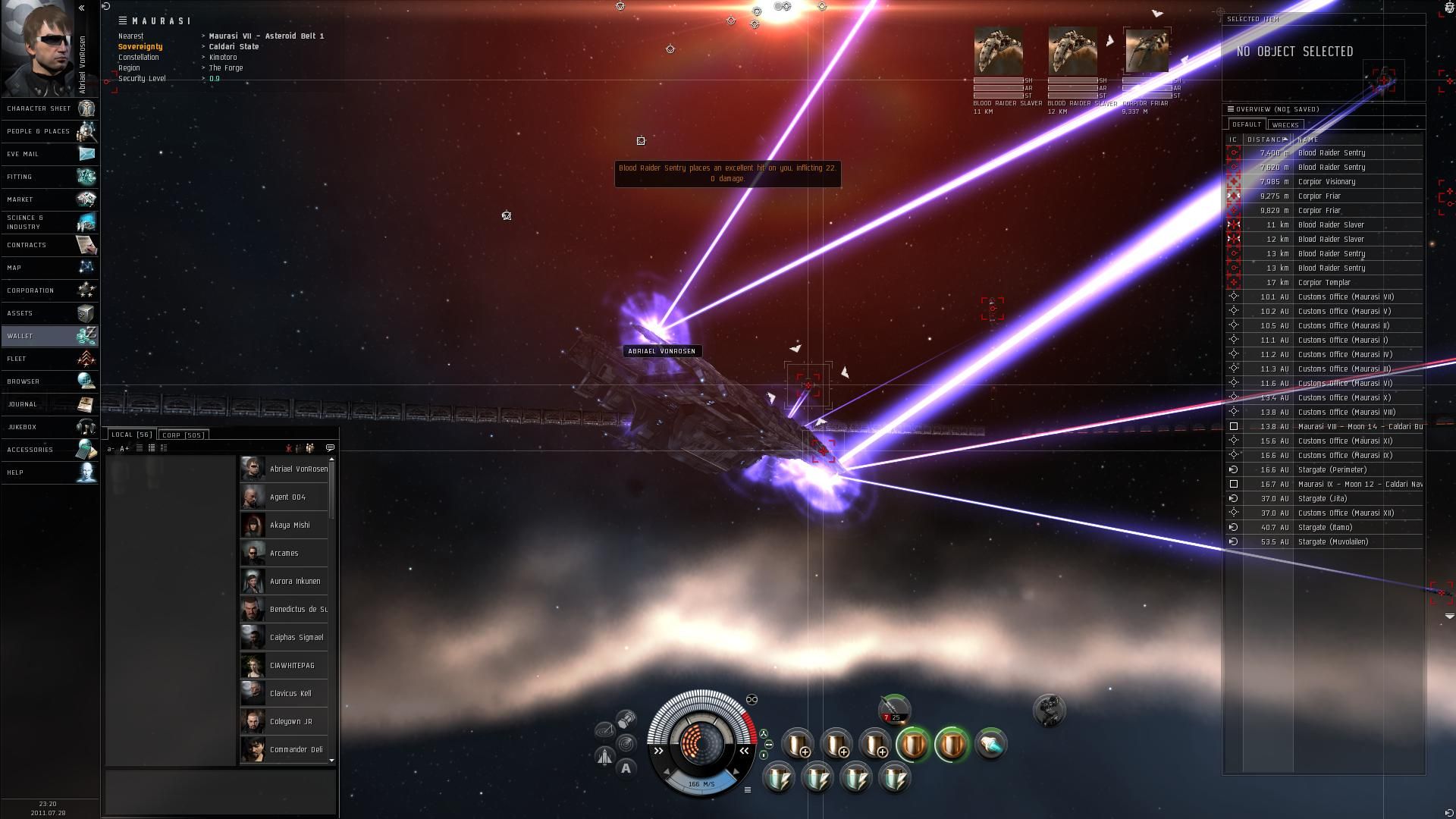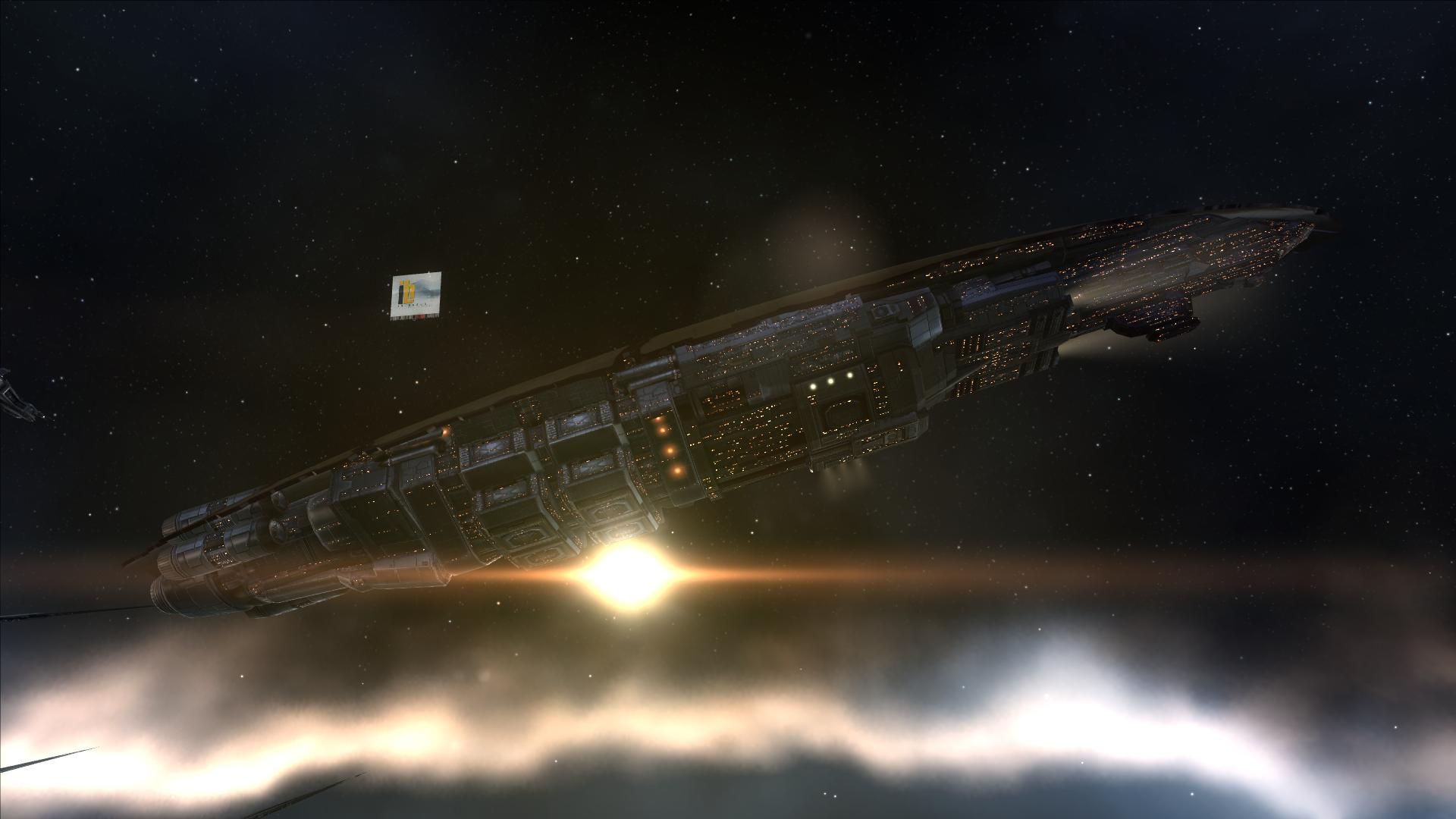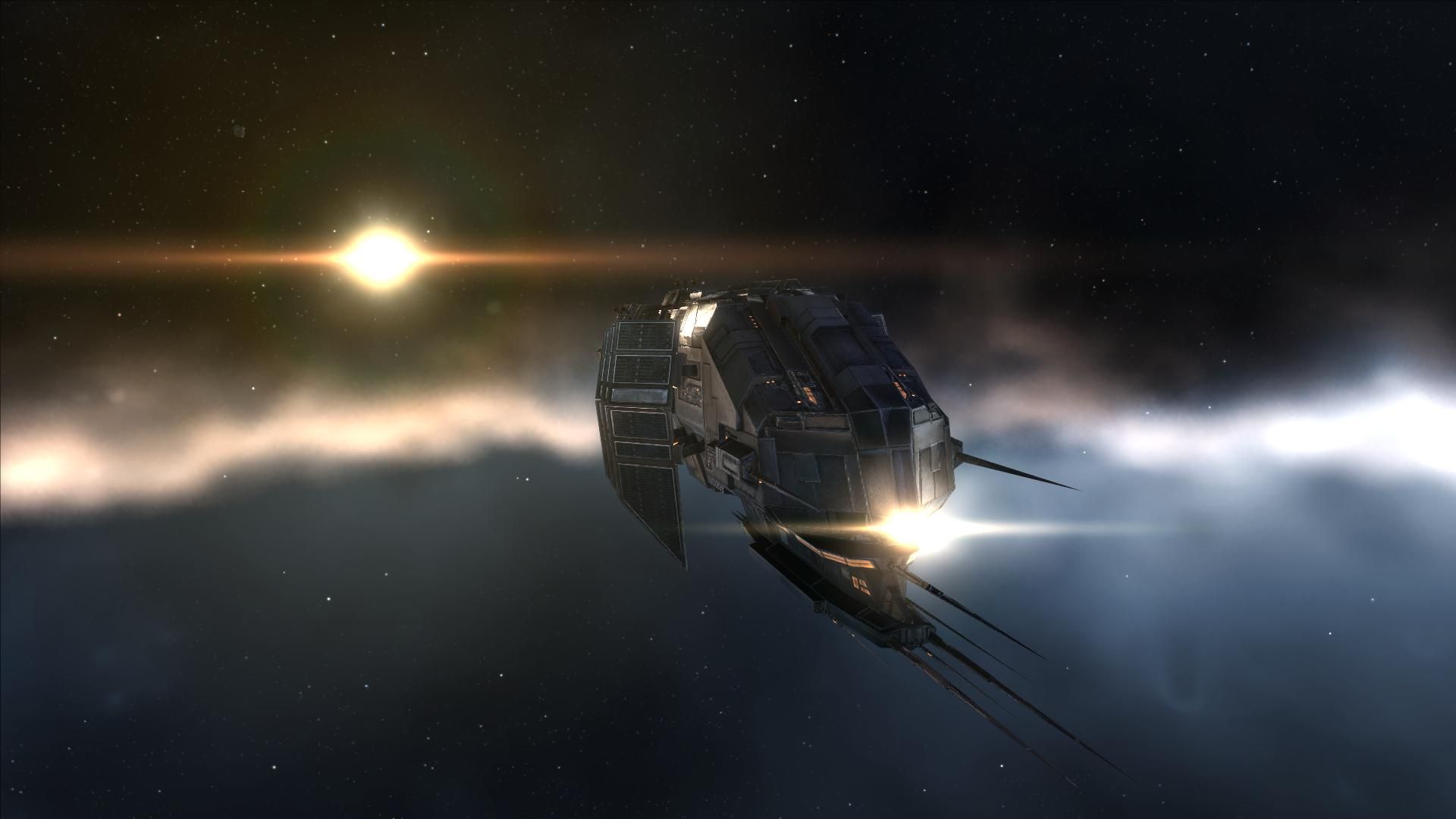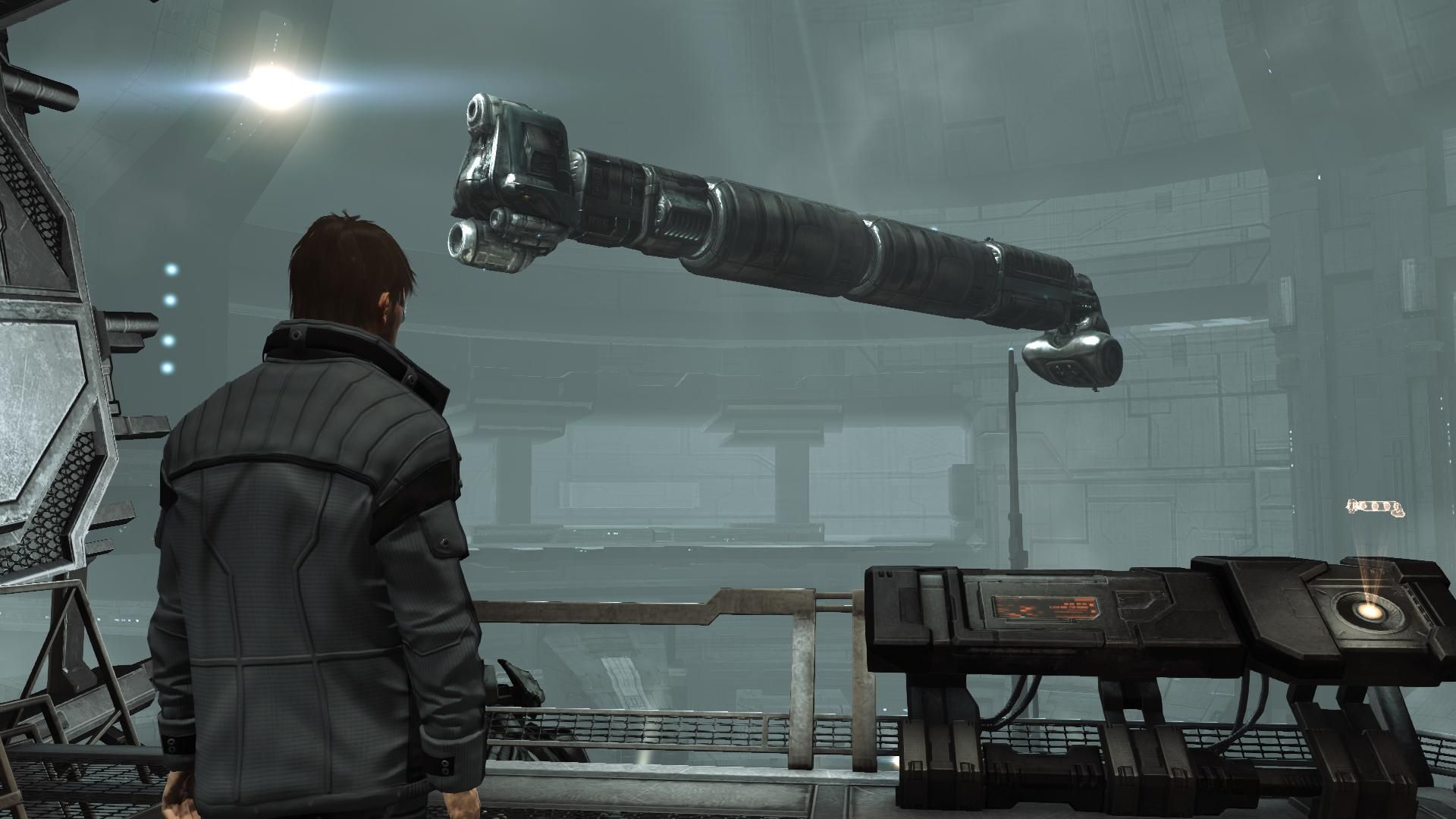You're probably asking yourself why you're reading the review of a game released back in 2003, and it wouldn't be surprising if you raised your eyes to read the date of this post in disbelief.
Fact is that EVE Online is one of those MMORPGs that evolved massively since their release, making most if not all reviews available on the Internet completely obsolete, and quite misleading.With the release of the Incarna expansion and the announcement of the PS3 Exclusive shooter DUST 514 based n the EVE universe (literally), many are curious about what this game is all about.
Ultimately, you can read here the reasons why we decided to take our time and give an updated look to this veteran but still very relevant MMORPG and why we will do the same with others in the future.
EVE Online is set many thousands of years in the future. Mankind traveled through a natural wormhole, discovering a solar system that was named New Eden and a completely unknown galaxy. No human effort could succeed in locating its position in space, but colonists quickly spread through the nearby star systems.
Then disaster struck. Suddenly the gate that connected the Milky Way with New Eden collapsed, bringing forth a cataclysm of unprecedented proportions. It took millennia for the human race to recover, generating five empires: the Amarr Empire, the Gallente Federation, the Caldari State, the Minmatar Republic and the Jovian Empire.
As communication was gradually re-established between the lost branches of the Human race, all hope was lost to regain contact with the ancestral planet Earth that was by then completely forgotten. War broke out, pushing technology and advancement to new limits, spurring further exploration of the unknown recesses of the galaxy and finally settling into a shaky balance between a weak peace and cold war.
The needs of interstellar exploration and combat gave birth to the nature-defying mating between the hydrostatic capsule and cloning technology, allowing starship pilots to become virtually immortal, tricking death as their memories were implanted in the brains of clones in the exact moment of their demise in the cold depths of space. That's how Capsuleers were born.
This is just a minimal part of the monumental amount of lore behind the EVE universe, part of which can be found in this document, that makes for an extremely interesting read for wannabe interstellar explorers.
As one joins EVE Online they are prompted with the creation of a Capsuleer belonging to one of four factions: Caldari, Gallente, Minmatar or Amarr. Jovians are not playable. Each race has three bloodlines to chose from, that mostly determine the general look and ethnicity of the character.
The difference between races is pretty much minimal, as they all start with the same stats. Besides cosmetic differences, the faction of choice will determine the starting location and the starting ships. That's all.
After choosing a race and a bloodline, the player is welcomed by one of the most beautiful and feature-rich character creators in the whole MMORPG industry. Body proportions are almost fully customizable, via a rather intuitive (even if not always precise) mouse dragging system, and the same can be said about the proportions of basically every element of the face, from lips to nose, cheekbones and so forth. An almost overwhelming number of hairstyles, eyes, tattoos, scars and piercing types is also available.
Creating an unique and detailed character is extremely easy, or better, I would say that it's almost impossible to create one that isn't unique, since there are simply too many variables for results to be replicated.
Some slightly annoying limitations are present, probably to differentiate between races and bloodlines more (for instance Caldari Deites can't have black hair), but ultimately the character creator is a real gem, and most customization addicts will probably spend hours to get just the right look for their Capsuleer.
One of the main points of attraction of EVE Online is its server structure: while most MMORPGs have several servers with only a few thousands active players each, in EVE the whole population of over 350,000 users is all focused on a single massive server cluster. This means that if you have friends playing the game, no matter where they are from (besides China) or when they joined, you'll be able to play with them.
With this kind of massive population in the same world, the scale of the game is simply stunning.
Despite the fact that EVE Online is now over eight years old, its visuals can easily be considered up to date, thanks to a series of engine and graphics updates that contributed to keep it fresh.
Starships are very detailed and feature a beautiful and stylish mechanical design, with a great degree of variation between different models and even more between different races. The only small flaw in some of the ship designs is that they don't convey their size and mass perfectly. For instance a Merlin frigate (that you can see pictured above) is about 60 meters long, but looking at it casually one would never guess that it's quite a lot bigger than a small starfighter.
Gun turrets are fully animated and retract when warping, adding that bit of movement that causes the ships to feel more "alive", as opposed as simple lifeless hulks traveling through space.
The area in which the graphics of EVE Online really shine, though, is quite appropriately the depiction of space. While navigating the hundreds of star systems in the galaxy it's almost impossible not to simply fall in love with the dramatic beauty of the nebulae and the pyrotechnics created by light and shadow cast by stars and planets.
Another beautiful addition that came with the latest expansion are the captain's quarters, a cabin that can be accessed whenever a pilot steps out of the capsule inside a space station. The deferred rendering technique used by CCP's creatives to create the quarters truly brings them to life, and the holoscreens streaming news and information give them a mixed feeling between low-tech and hi-tech that's perfectly appropriate to EVE's sci-fi universe. An interesting little detail is that the holoscreens actually display events in real time, so if you get your new pilot license, or a bounty on your head, you might have your nice mug broadcasted galaxy-wide to everyone's captain's quarters.
The models of the capsuleers themselves are charming, to say the least, even if their appearance in the game doesn't sport the stunning level of detail shown in the character creator they easily qualify as the most detailed character models I ever seen in a MMORPG to date.
Overall, EVE Online's graphics show a quite high degree of quality which are at least on par or even superior in some areas to most current MMORPGs, especially after the Incarna expansion. If you want to see more pictures than this review can include you can give a look at my Flickr gallery.
While the sound effects are adequate, even if not necessarily spectacular, music is another of the good points of the game. The tracks are varied and atmospheric, very fitting to the setting, and often even soothing. There are only a couple that suffer from the addition of some rather annoying electronic effects that tend to pop up at the worst possible time. Luckily they appear rather rarely and don't really spoil the experience.
A pleasant highlight is the voice of Aura, lent by the British actress Caroline Dalton. Aura is the AI that supports every capsuleer, and her soothing but slightly inhuman voice can be heard while responding to commands and during the tutorial.
Production values aside, though, what makes or breaks a MMORPG is obviously gameplay, and EVE Online has eight years worth of gameplay to enjoy, but it's not the same gameplay many have grown to expect from the usual MMORPG: EVE is a sandbox game which favors freedom of choice and action instead of creating many fixed fun rides that leave little or no choice to the player.
After creating a character the player is welcomed by a rather extensive fully voiced tutorial, completely revamped with the latest expansion and designed to finally address one of the main points of criticism brought to bear against the game in the past: the steep learning curve.
The new tutorial covers pretty much everything a new capsuleer needs to know, starting with a quick series of missions, and then moving on to specific courses that explore various possible careers inside the game, turning the previously quite rocky first days in the void of space into a much smoother experience.
I said "careers" above, but that shouldn't be interpreted as the usual character classes you find in most MMORPGs. In EVE Online there are no classes, and there are no levels. Progression is entirely skill based, and the player can chose how to build his personal skill set with almost complete freedom. Of course not all skills are initially available, as some are unlocked by reaching certain levels in the more basic ones.
While the massive amount of skills available can initially disorient the new Capsuleer, the certificate system works as a guideline to help those that don't want to read pages upon pages of descriptions. Want to learn how to fight with missiles in your new cruiser? Just learn the skills required to get the corresponding certificate and you're set.
Skills themselves are learned over time. Each of the five levels of a skill requires a increasing amount of minutes, hours or days to be learned. All skills continue to train even when the player is offline, with the chance of setting a queue for up to twenty-four hours. This means that casual players will skill-up pretty much at the same rate as hardcore ones.
As there's no upper cap to how many skills a player can learn with time (until he learns every skill, of course: a task that takes years), every career is open to be pursued, as long as there's the time and the will to do it.
Skills determine basically everything you can do in the EVE world, from what ships you can pilot or what kind of products you can create to your ability to lead a corporations and so forth. Instead of progressing only vertically, gaining levels like in your usual MMORPG and increasing your powers in a limited area, here your progression increases your power by allowing you to use bigger and better ships and weapons as well as making you more flexible with every new skill learned.
Once you have learned your first few skills and finished at least part of the tutorial, it's time to start looking around and deciding what do with your life in New Eden. It's basically impossible to list all the activities you can engage into, mostly because EVE players invent new ones every day: Pirate, trader, smuggler, bounty hunter, soldier, industrial tycoon, broker, explorer, corporate CEO, even a swindler or a spy. You can be all those and many, many more. The only real limit is your ambition and your ability to find and exploit opportunities.
Of course the game still has some standard Player vs Environment activities, for those that prefer a more classic MMORPG gameplay. Each starbase, for instance, has one or more agents that will offer you a variety of missions that are nothing else than your classic quests in which you'll be prompted to exterminate pirates, deliver cargo, recover artifacts and a perform plethora of others tasks. After completing a certain number of those missions, you will be granted special storyline missions, that normally provide a deeper insight on the story behind the game.
There are also events similar to Warhammer Online's public quests, dubbed Incursions. Periodically a NPC faction named Sansha's Nation invades a number of constellations trying to conquer them. Players have to band together in order to repel the incursion during a number of large battles that decide the movement of a progress bar. Incursion fleets sport an improved AI, so they tend to be more tricky to fight than the petty pirates you find in most single player missions.
You can also contribute to the industrial development of New Eden by mining resources from asteroid belts and moons, hauling goods from station to station, manufacturing them yourself or even building a colony on a planet to produce even more goods.
Exploring is also a remunerative and adventurous activity, as space is dotted by anomalies and wormholes that upon discovery can lead the daring to a completely different area of space, or even uncharted areas that contain precious loot or deadly enemies. It gets even more exciting (or dreadful) when the wormhole collapses right behind you after you passed, leaving you stranded somewhere in the universe forcing you to roll up your sleeves in order try and find a way back to safety.
Speaking about space, the hundreds of systems that form the galaxy can be split in three major groups according to their security level, or the presence of EVE's local police force (named CONCORD). Security goes from 1.0 to -1.0. Systems rated 1.0 to 0.5 are defined Hisec. Here any unsolicited attack against another player will be dealt with by CONCORD, that will warp in and kill the aggressor as soon as possible. In addition to this, jump gates are armed with sentry guns for the same purpose. Criminals will also suffer a penalty in their standing when they commit violent crimes, and will be attacked without warning when their standing is too low. Smuggling illegal goods in Hisec definitely isn't a good idea.
Systems rated from 0.4 to 0.1 are defined Lowsec, and CONCORD presence is limited to the sentry guns at the jump gates. If someone attacks you away from the gates, you're on your own. Criminals still suffer a standing penalty when attacking.
Finally systems rated from 0.0 and below (they will all appear as 0.0 on the UI) have absolutely no CONCORD presence, and no punishment for attacking another ship. If you go there, you're fair game.
While staying in Hisec may seem a sensitive option when not looking for trouble, it's also to be noted that the lower the security of a system is, the more profitable anything you do in it will be. Ore mined will be more precious, commerce of most goods will yield more profit, NPC enemies will be stronger and drop better loot and so forth.
In addition to the above, the notion that Hisec is safe is a misconception. There are still a few more or less underhanded ways to kill someone in Hisec systems, for instance with suicide attacks that rely on killing the prey before CONCORD can intervene. It's rare, but it does happen.
So there you have it, the boogeyman legends that you heard about EVE Online's unforgiving environment are actually true. Unless you're docked at a station, there's no place in space where you will be completely safe. Some systems will be reasonably safe, but getting complacent anywhere can cost you your ship, or worse.
This is actually quite refreshing, as EVE Online is one of the very few MMORPGs that offer this kind of thrill at all times, setting it radically aside from the crowd. As a Capsuleer you know that you're flying in the dark underbelly of space, full of virtual lowlifes that want to kill you, rob you blind and other unpleasant activities.
The quite harsh death penalty adds to the thrill: if your ship is destroyed you'll lose it forever along with all of your cargo you were carrying, including your weapons and equipment. If your enemy feels cruel (or if you fail to pay the ransom that is often asked), he can decide to destroy your escape pod as well, actually killing you. If you're killed you respawn in a new clone, losing all the costly neural implants you had in your old body (that are now space dust alongside with it) and the cost of the clone itself.
You may also risk to lose some of the skills you learned if you got a cheap clone that doesn't cover them all. Most people don't do that basic mistake, so losing skills is actually quite rare. You can also insure your ship in order to get back some of the money you lost.
This actually acts as an indirect but wonderful balancing factor for PvP. When you're a newbie your losses are minimal when you die. Your ship is cheap, you don't have costly implants, and your clone costs a pittance. You can jump into PvP immediately to learn the ropes without being excessively afraid to lose everything. You'll probably die a lot, of course, but you will gain valuable experience and maybe even win some fights.
On the other hand, veteran players that normally would have an overwhelming advantage just by going around in their massive battleships, more often than not decide to give that advantage up and bring lighter crafts. Loosing their fully fitted top dog would possibly remove several millions if not billions of ISK (EVE's currency) from their wallet, and no matter how strong you are, there's always a chance to find someone stronger, or many someones.
Ultimately, dying in EVE Online is definitely serious business.
In order to risk death, of course, you have to fly your ship out in space and to partake in some kind of hostilities. There is an overwhelming amount of different spaceships in the game, starting from small frigates to transport ships, all the way up to supercapital ships like super carriers and Titans. Progression isn't always linear, as there are also several kind of specialized variants, like Interdictors able to jam the warp engines of other ships, or logistic shields, specialized in buffing and repairing other ships.
The same variation is present in the weapon systems and equipment that can be fitted in each ship (commonly named Modules), allowing each player to customize every ride in accordance with his preferred style of play.
While this overabundance of options and combinations is a lot of fun in itself (as fitting a ship perfectly is already half winning) it also brings forth some imbalances and causes the developers to have to continuously rebalance whole fleets, often resulting in the usual flavor of the month issue that plagues many MMORPGs.
On the other hand the many options also mean that there will be an higher than usual number of viable solutions, creating a good degree of variety in the ships you'll see around you at any given time. It's a refreshing change from most MMORPGs in which you'll see people performing the same role almost always equipped in the same way.
Once you have chosen a ride and fitted it with all sort of payload, you can finally fly out and fight. The combat system is quite intuitive and somewhat similar to point and click MMORPGs. You click on a area in space, and your ship will head there. You can also select objects like other ships, asteroids and similar, and maneuver to approach them, follow them or orbit around them at a set distance.
Attacks are executed by locking on a target (faster when targeting bigger ships, much slower against smaller and more agile vessels) and then activating the weapons of choice. Active systems like shield rechargers or similar can be activated as well in something similar to a classic MMORPG action bar.
This system is definitely different from the twitchy one many would expect from a space combat game and puts a lot of emphasis on experience, precision, team tactics and communication. In the end it can very properly be defined as easy to learn and hard to master.
While the UI is very functional, there are a tad too many menus, and some operations could use some streamlining. One thing in particular really bothers me: when playing on 1920x1080 resolution the font is extremely small, and there's no way to change or enlarge it. Honestly I don't remember a single game that made me squint my eyes as much as EVE Online does.
While solo play is still interesting and compelling, things get much more interesting when one joins a corporation (EVE Online's version of a guild) . There are many kinds of corporations in the game, just as there are many kinds of jobs one can perform, since quite often they are based on a specialized role. There are Industrial corporations dedicated to building superbattleships, pirate corporations that only care about plundering and robbing other players blind, PvP corporations of all kinds, trading corporations and even roleplay corporations.
Corporations can own starbases and various kind of structures to act at their bases of operations and they can gain sovereignty over whole Nullsec star systems. They can also, of course, engage in war against each other or join in massive alliances to try and control whole regions. Battles between alliances can involve several hundreds of ships per side and are extremely fun and epic.
Unfortunately very high numbers also cause lag that can spoil the fun when it gets too extreme, though the situation has improved over the years as CCP implemented new systems of server booking and improved the netcode. Medium-sized battles are definitely the most compelling due to the fact that numbers are still high but the lag is much more reasonable.
One negative note, at least for those that aren't entirely focused on space combat, is that the out-of-ship functionality of the game is still extremely limited. While it looks quite fantastic visually, it's still not possible to leave your Captain's Quarters or to invite anyone in them, making the avatar experience basically a single player one.
The character creator designs some stunning in-game portraits, but due to the inability to actually explore stations, face-to-face interaction simply isn't there yet, which is a sizable shortcoming in a MMORPG. What has been announced and shown by CCP for the (hopefully near) future is impressive, with socializing, gambling, smuggling and customizable corporation-owned establishments. The problem is that all that goodness is in the future, so the current functional limits of our human representation in the game are a bit jarring.
Some players complained quite vocally about the addition of microtransactions to the game, and quite pricey ones at that considering that access is already regulated by a monthly fee. Those items seem to be a non-issue though, as they are only vanity items with no influence on gameplay whatsoever. Their only function is to make someone look better than the next guy, and even that is debatable, considering that the outfits available for free during the character creation look just as good.
The ones that don't want to use the cash shop can easily ignore it, while the ones that have some spare money to spend in pixel clothes will grant more resources to the developer, at least some of which will be (hopefully) reinvested in the game itself for everyone to enjoy. Looks like a win/win situation to me.
After eight years of constant evolution, EVE Online is one of the most solid MMORPG experiences on the market and also one of the most unforgiving and ruthless sandbox lover's wet dreams you'll ever find online. Despite the game's age both graphics and gameplay are easily on par with the best, and depending on your play style and tastes, even the best may be left behind. While the limited avatar functionality prevented the score from going even higher, Rome wasn't built in a day.
EVE Online is definitely not for everyone, but if you have the guts and the determination to stand up to a massive world in which every action can have serious and often long-lasting consequences (or if you're simply looking for the diametric opposite of World of Warcraft), its quality, freedom and depth simply cannot be overlooked.

